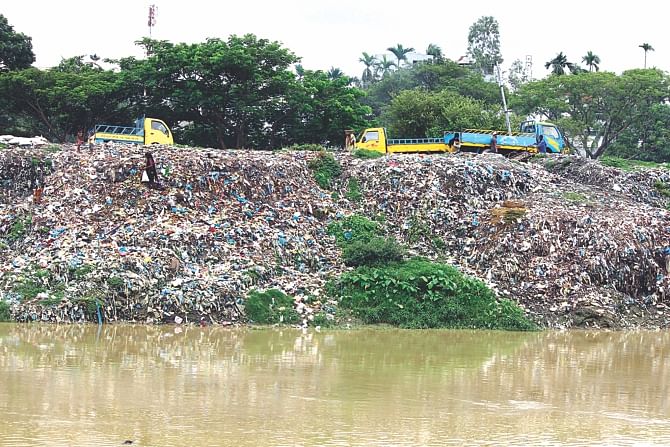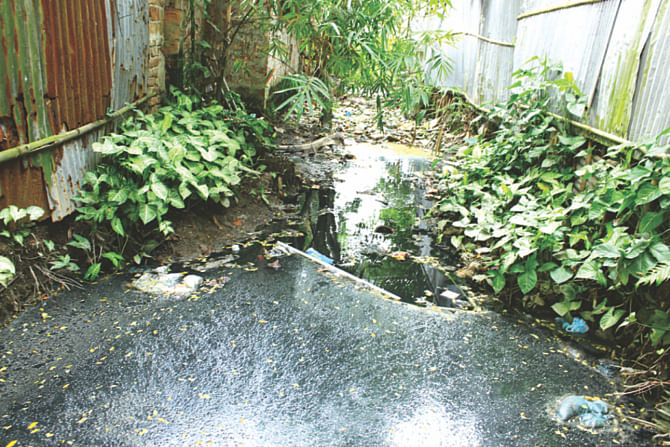Khowai dying due to random encroachment, pollution

The Khowai River flowing beside Habiganj town has turned into a narrow stream containing polluted water, thanks to mindless encroachment and dumping of human wastes.
The situation causes manifold problems concerning navigability, irrigation, ecology and environment.
“During my childhood, the Khowai was 250 to 300 feet wide and 25 to 40 feet deep,” said Nil Chandra Das, 85, an inhabitant of Rampur village near the river.
Several canals once connecting the river with Machulia, Rampur and Sultanpur areas are now extinct, said a few elderly people of the area.
During this correspondent's visit to the riverbank at Rampur on December 3, several farmers, mostly marginal and landless ones, said the river contains very little water in the dry season and so, they face problem in cultivating crops.
They have urged excavation of the riverbed and construction of sluice gates to facilitate irrigation.
“Due to irrigation problem, boro farmers in the nearby villages have switched to vegetable cultivation but it is also hampered in the dry session due to lack of water,” said advocate Alauddin Talukdar, conveyor of Puraton Khowai Nodi Rokkha Committee.

With less availability of fish in the river, many fishermen, boatmen and other people, who were once dependent on the river, have changed profession. Pollution in the narrowed down river has taken a serious turn as chemical wastes from small industries, on or near the banks of Khowai River, are left there.
Human wastes from open toilets on the riverbanks and others across the town also find their way into the river through drains and canals.
Protecting the rivers from encroachment and pollution is a must to save the biodiversity and livelihood of the people, said Tofazzal Sohel, a 'water keeper' of the Khowai.
"Lack of garbage management system in Habiganj town is the major cause of pollution in the Khowai River. Besides, some influential people have occupied lands on the riverbank during the past several years," said Ekramul Wadud, Habiganj district unit president of Bangladesh Paribesh Andolon.
Syed Sahedul Alam Sumon, executive engineer of Water Development Board in Habiganj, said encroachment of the banks of the Khowai River has led to alarming decline in its navigability and it hampers smooth movement of vessels to and from other districts.

 For all latest news, follow The Daily Star's Google News channel.
For all latest news, follow The Daily Star's Google News channel. 



Comments